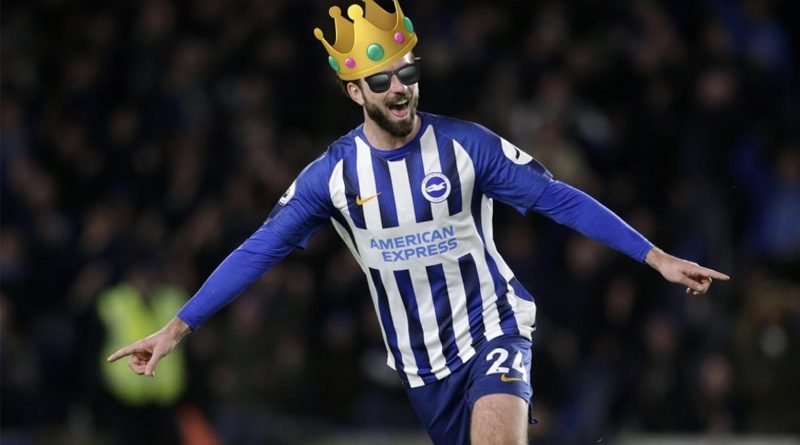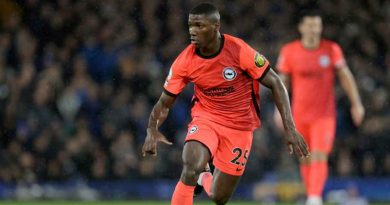An ode to Davy Petrus Wenceslaus Henri Pröpper
“So, in England, we have this term whereby we refer to certain footballers as ‘proper’ players. Do you think this applies to you?”
A nonplussed Davy Pröpper politely responds to a fairly rancid enquiry, inwardly wondering when he can end the hellish ordeal that is the pre-match interview.
Quieter and more talented than the average footballer, Pröpper – full name David Petrus Wenceslaus Henri Pröpper – now holds the jarring distinction of having retired aged 30. He will be missed.
For many, the arrival of Pröpper at Brighton from PSV in the summer of 2017 was when we really hit the big time. Less than three years after Sami Hyypia’s reign of abysmal nihilism, we were now in the Premier League and recruiting from major European clubs.
Pröpper went straight into the team and stayed there for the next two years. Fans were divided; a talented and languid individual, Pröpper was either Operating On A Higher Plane or Too Chilled Out.
Davy and his partner Dale Stephens provided the bedrock of a midfield that served Brighton well in the functional Chris Hughton era.
Pröpper’s potential seemed to be forever curtailed by an obstinate role in a risk-averse tactical set-up, especially given his more advanced position in the Netherlands’ first team.
This did intermittently change with the arrival of Graham Potter. GP’s first game saw Pröpper assist Florin Andone and in so doing suffer a suspected nosebleed due to the fact he was in the opposition half.
Surging runs forward from midfield became a trademark move. Pröpper was one of our most talented players and would frequently do things that other players couldn’t.
The assist for Gross at Old Trafford, the assist for Jurg against Arsenal, that time he flattened about seven Huddersfield players to stop a breakaway counter-attack.
The Streets won't forget Davy Propper #BHAFC pic.twitter.com/cAeEnYYrKQ
— We Are Brighton (@wearebrighton) January 4, 2022
His decision to retire early is not an unusual one; every now and then a player retires by choice before reaching their late 30s.
Even then, those that do last the distance are not always emotionally invested and instead they professionally play a game that they’re quite good at.
Numerous current and ex-pros talk of the Desire and Pashun (sic) required to succeed at the top level, but others speak of a more detached relationship with the sport that shapes the lives and mental states of so many.
In the recent past, Bobby Zamora and Ben White have both admitted to a total lack of engagement with football beyond the training ground or stadium.
The way some have been swallowed up and spat out by a line of work that is sometimes truly vile in its machinations, it’s hardly surprising that others aren’t too keen on getting too enmeshed in it.
As a fan I have always hugely warmed to players like Davy. Diligent and very much part of the group, yet somehow more wistful and distant than his all-action compatriots.
You never heard much from Davy. You never had the chest-thumping of Lewis Dunk or the shit-stirring of Neal Maupay. You didn’t have the natural amiability possessed by Webster, Burn, Lallana, Lamptey and Welbeck when faced with a thrusted mic.
What you did have was more of a reluctance, shared by the likes of Glenn Murray (the first coming) and now Solly March. The warmth of the spotlight seems to burn these people more than others, and as a fan you’re left wondering what they really make of it all.
Nothing would surprise me regarding Davy’s next job. Pilot? Stay-at-home dad? Marine biologist? If only he had a marketable surname.
Whatever it is: happy retirement to one of my favourite Brighton players. A wonderful talent whose footballing ability ended up outstripping his love for the game.
Edward Woodhouse @edwardwoodhouse




